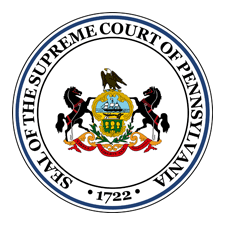Non-Pennsylvanians Can Sue PA. Businesses for Out-of-State Transactions Under UTPCPL
By P.J. Dannunzio | UPDATED Feb 26, 2018 at 07:17 AM
The Pennsylvania Supreme Court has ruled that citizens from other states can sue Pennsylvania-based businesses for transactions that occurred outside the state under the Unfair Trade Practices Consumer Protection Law.
The justices’ unanimous ruling in the class action Danganan v. Guardian Protection Services answered the certified questions on the UTPCPL’s geographic restrictions posed by the U.S. Court of Appeals for the Third Circuit, which had been handling the case, and sent it back to the federal appellate court.
Plaintiff Jobe Danganan sued Pennsylvania-based Guardian Protection Services under the UTPCPL after he continued to be billed for a home security system in a Washington, D.C., house he had moved out of, even though he canceled the contract. The district court ruled against him and he appealed to the Third Circuit.
Danganan argued that the language of the UTPCPL, specifically the terms “person,” “trade” and “commerce,” did not denote a specific geographic requirement, according to the Supreme Court’s opinion written by Chief Justice Thomas G. Saylor.
“Respecting the specific terms employed by the UTPCPL, we agree with appellant’s observation that the plain language definitions of ‘person’ and ‘trade’ and ‘commerce’ evidence no geographic limitation or residency requirement relative to the law’s application,” Saylor said.
“Although the trade and commerce definition includes a clause relating to conduct that ‘directly or indirectly affect[s] the people of this commonwealth,’” Saylor continued, “that phrase does not modify or qualify the preceding terms. Instead, it is appended to the end of the definition and prefaced by ‘and includes,’ thus indicating an inclusive and broader view of trade and commerce than expressed by the antecedent language.”
Saylor also said the statute is meant to be construed liberally as it covers an expansive breadth of conduct.
“In this respect, we recognize, as we previously have, the wide range of conduct the law was designed to address, including equalizing the bargaining power of the seller and consumer, ensuring the fairness of market transactions, and preventing deception and exploitation, all of which harmonize with the statute’s broad underlying foundation of fraud prevention,” Saylor said.
Michael D. Donovan of the Donovan Litigation Group represents Danganan.
“We’re very pleased by the ruling,” Donovan said. “I think the court clarified the law terrifically. All of the federal decisions had been to the contrary and the issue hadn’t been able to make it through the appellate courts in Pennsylvania predominately because the defendants were always removing theses cases to federal courts.”
He added, “The federal courts had a good 10 years of decisions that have been proven incorrect by [the Supreme Court’s] decision.”
Michael Iannucci of Blank Rome represents Guardian and declined to comment.







 Michael D. Donovan Selected to Pennsylvania Super Lawyers 2004-2025
Michael D. Donovan Selected to Pennsylvania Super Lawyers 2004-2025